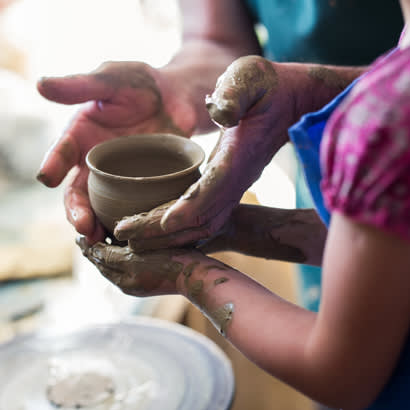
Supporting youth and related programming is essential to advancing the health and well-being of a young person. Mentoring through parks and recreation is an impactful way to provide that support, with park and recreation agencies serving over 40 million youth annually. Parks and recreation often play a large role in supporting youth development, and in partnership with community members, are uniquely suited to serve as stewards of Community Wellness Hubs – trusted gathering places that connect every member of the community (including youth) to essential programs, services and spaces that advance health access for all, improve health outcomes and enhance quality of life.
As winter and the holidays quickly approach, temperatures begin to drop and some not-so-favorable weather conditions arise. Sometimes it is not always possible to be outside or utilize typical park and recreation assets and programming. Below are some fun and creative ways to continue supporting and engaging youth in your community year-round.
1. Connect with your local school district. See if you can start a "lunch buddy" program or join an afterschool program to provide tutoring and academic support.
2. Plan an in-person or virtual group mentoring and/or family engagement activity – host a gingerbread house contest, bake cookies or make ornaments.
3. Start a social club for mentors, mentees and their families to participate in. Leverage your local assets and facilities. Examples include facilitating a hiking club, outdoor winter activities, topical clubs (healthy cooking, arts/cultural offerings, book club, etc.).
4. On MLK Day of Service (or another day of importance), host a park clean up or other volunteer events to provide opportunities for giving back to the community while engaging mentors, mentees and their families.
5. Offer job shadowing programs for older youth. This can also help drive interest in future park and recreation careers and summer youth employment programs.
6. Start a workforce development program to help prepare youth for future jobs with the hard, soft and power skills they will need to perform and succeed.
7. Offer opportunities for youth to participate in independent or shared decision-making. Ask mentees what activities they would like to participate in or have them plan out an activity calendar.
8. Foster youth-led initiatives and other opportunities for youth leadership. Examples include starting a student government body, debate club or Model UN.
Mount Airy Parks and Recreation, located in North Carolina, is a community that has participated in NRPA’s Park and Recreation Mentorship for Rural Youth initiative. This agency has found success in providing meaningful and engaging opportunities within its youth mentoring program. Both in-person and virtual activities have occurred, and include family game nights, park clean-up events, trips to a local farm, bead and jewelry making, holiday-specific arts and crafts, and more. These activities provided opportunities for youth to learn new skills, engage with their local community, and socialize with peers while receiving mentoring services.
Analyze your existing youth offerings and what other partners and community organizations offer — youth sports, afterschool programs, winter childcare, community events, environmental education, etc. — and develop a plan to integrate lessons from the NRPA Youth Mentoring Framework and MENTOR’s Becoming a Better Mentor resource.
Considering the tips provided, what are some ways your agency can leverage resources or serve as a Community Wellness Hub to support youth in your community? Let us know in the comments or tag us on social media and use #CommunityWellnessHubs!
All throughout January, we will be celebrating National Mentoring Month. Join the conversation on social media using #MentoringMonth and #MentoringAmplifies.
Lauren Kiefert, MPH, is an NRPA Program Manager.


